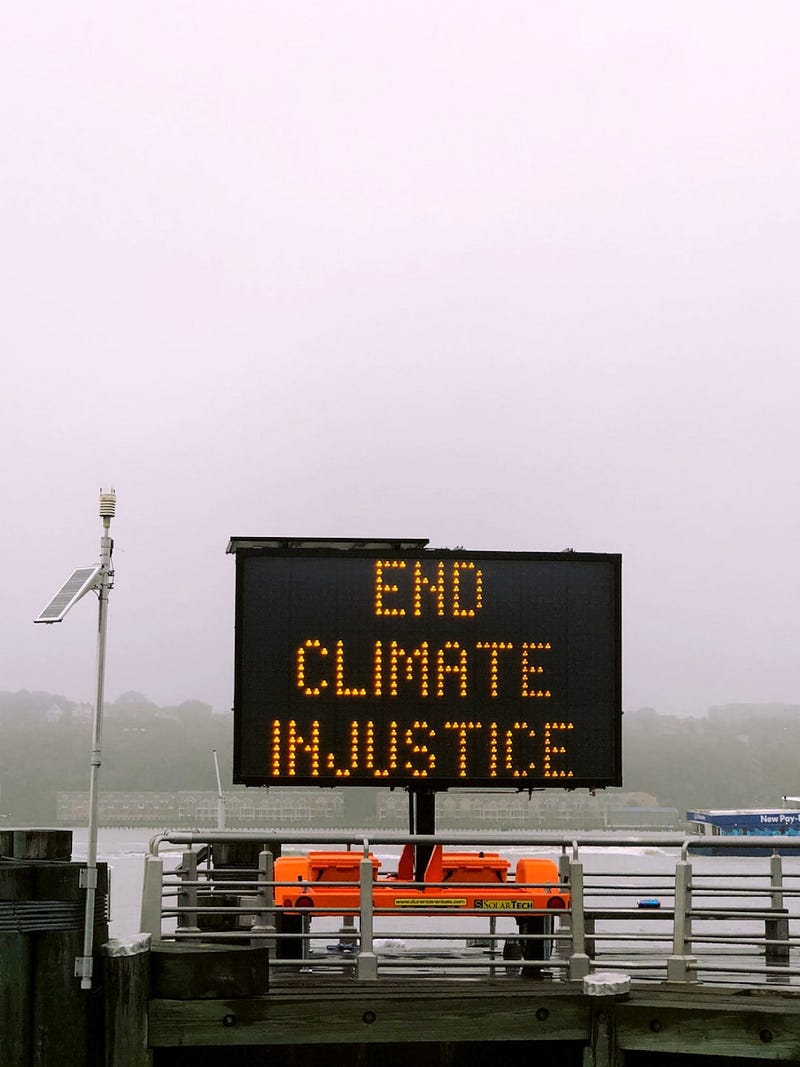Climate Change is Hitting Communities Hard: Let's Talk Solutions
Written on
Understanding the Impact of Climate Change
What’s up, America? Today, we need to have an honest conversation about climate change. You might be thinking, "Isn't that a problem for scientists and politicians?" But the truth is, it’s time for all of us to pay attention, especially in marginalized communities. Climate change is not just about polar bears or melting ice; it's about our lives, homes, and neighborhoods. Unfortunately, it’s the underprivileged and people of color who are suffering the most.
Let’s be clear: climate change isn’t a distant issue; it’s a current reality. Remember those wildfires in Canada that filled our air with smoke here in Arkansas? My friend Terry, who has C.O.P.D., nearly lost his life because of it. And then there’s that heatwave that makes us feel like we're about to melt. Yep, that’s climate change too.
The Economic and Health Toll
Climate change is not just about unpredictable weather patterns; it's affecting our jobs and health. The planet is warming unevenly, leading to extreme weather events that hit the most vulnerable areas hardest.
Take Arkansas as an example. We’ve experienced more severe weather events recently, including storms and floods, leading to damages exceeding $1 billion over the past three years. And guess who bears the burden? It’s certainly not those living in the upscale neighborhoods.
Beyond financial impacts, the health and safety of our communities are at risk. Floods don't just destroy homes; they obliterate lives and futures, leaving devastation that takes years to recover from. Meanwhile, those already struggling are left to pick up the pieces.
Now, let's talk about the broader weather changes. Summers are scorching, winters are more unpredictable, and droughts are becoming a reality. This shift is impacting everyone, from farmers who must adapt their planting schedules to hunters facing dwindling game.

Taking Action: What Can We Do?
So, what’s the solution? That’s the million-dollar question, right? While there’s no simple fix, we can start by acknowledging the issues and educating ourselves and others about the realities of climate change. We must demand action from our leaders while maintaining hope and resilience.
As we delve into how climate change disproportionately affects people of color, we must recognize that it’s not just about environmental issues; it's fundamentally about justice and power dynamics. Those most affected are often the ones with the least resources to adapt.
Consider the recent heatwaves. Not everyone experiences this heat equally. Many in our communities lack air conditioning, shady trees, or the financial freedom to relocate when conditions become unbearable. We are left to endure while wealthier individuals enjoy their comfortable homes.
The air we breathe and the water we drink are also at stake. Pollution affects our health, particularly for our children, while crop failures lead to food insecurity. It’s essential to highlight that those suffering the most are not the ones responsible for the crisis.
Lil Baby - The Bigger Picture explores the impact of social justice and climate change, shedding light on how these issues intersect.
Addressing Climate Injustice
Let’s face it; the major contributors to climate change are the wealthy and powerful. They’re the ones responsible for burning fossil fuels and exploiting natural resources, yet they have the means to adapt. Meanwhile, marginalized communities bear the brunt of the consequences.
This isn't to instill fear but to motivate action. We can no longer afford to ignore climate change or allow the elite to dictate our future. We need to stand up, voice our concerns, and fight for justice.
SURVIVING DIDDY dives deep into the trauma and dark realities faced by communities, reflecting on the broader societal issues we must confront.
Mobilizing for Change
We cannot stop at awareness; we must act. Educate yourself and others about climate change and support policies aimed at reducing greenhouse gas emissions and protecting our environment. Hold leaders accountable for their commitments and push for actions that prioritize community needs.
Additionally, we can make personal lifestyle changes to reduce our carbon footprint by driving less, eating more plant-based foods, and conserving energy. Engage in community initiatives that promote sustainability, and advocate for clean air and water.
This fight won’t be easy, but I believe in our resilience and our capacity for change. Together, we can make a difference.
So, let’s unite and advocate for a future where everyone, regardless of background, can thrive in a safe environment. We deserve nothing less, and we will fight for it.
Conclusion: Our Collective Responsibility
In closing, I hope this discussion has provided you with a deeper understanding of climate change and its effects on our communities. This battle is just beginning, and it’s going to require all of us working together.
Let’s roll up our sleeves and get to work, America. Our future hangs in the balance.